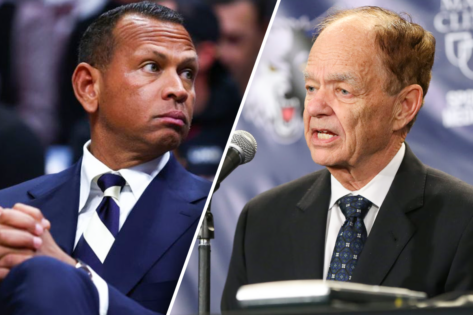NBA team owners have long relied on tax benefits to retain their profits. When teams are sold, new owners write off intangible assets—like broadcasting rights, sponsorship deals, and player contracts — for tax deductions. They use legal tax minimization strategies and accounting mechanisms that significantly reduce their tax burdens. But the new policy bill will significantly make it harder.
How NBA team owners keep their profitable income ‘safe’
Currently, under the tax law, new owners are allowed to write off player contracts. In addition, they can also categorize a few things under intangible assets for 15 years.
On paper, this shows the team might be running at a loss, even though they might be profitable.
Resultantly, teams can evade certain taxable income by showing a lower profit or total loss.
Per Forbes, despite the rising valuations of teams each year, they claim losses.
Similarly, they show operating losses on paper by shifting the profits and incomes elsewhere. Most NBA team owners have other business ventures. This allows them to allocate funds to those assets from the profit of their sports teams.
On the other hand, teams often delay in recognizing their revenue. For example, a team can shift the revenue they earned from a sponsorship deal or media rights deal to the next fiscal year. The nuanced contract structure with regional sports media networks allows more flexibility to teams.
A ProPublica report noted that:
In 2018, LA Clippers owner Steve Ballmer reported making $656 million.
He paid a tax of $78 million, or just 12% of his profitable income.
Comparably, LeBron James paid 35.9% tax, while a worker at Staples Center paid 14.1%.
It further noted that Ballmer got to deduct roughly $2B from his taxable income by offsetting TV deals and player contracts. By the same report:
Stan Kroenke, owner of LA Rams and Denver Nuggets, paid around 10% in taxes.
Philip Anschutz of the LA Kings paid roughly 15%.
John Henry of the Boston Red Sox had a federal tax slab of roughly 20%.
It should be noted that NBA team owners are using tax code masterfully, not fraudulently. Smart tax structuring allowed the business moguls to keep their actual profitable income virtually unscathed from the sword of federal tax. But that’s likely to change now.
What the new bill proposes
Donald Trump’s new policy bill will reduce the benefits enjoyed by the sports team owners. The House bill would allow owners to deduct just half of a team’s intangible assets for 15 years.
Which means the new owners of the Minnesota Timberwolves and the MLB’s Minnesota Twins will not have the same benefit that other team owners have enjoyed for years. Per a report on the Star Tribune, the owners are expediting the process.
May 22, 2025; Oklahoma City, Oklahoma, USA; Minnesota Timberwolves forward Julius Randle (30) drives against Oklahoma City Thunder center Isaiah Hartenstein (55) in the third quarter during game two of the western conference finals for the 2025 NBA Playoffs at Paycom Center. Mandatory Credit: Alonzo Adams-Imagn Images
The transaction between Alex Rodriguez, Marc Lore, and billionaire Glen Taylor is yet to get the green light from the NBA Board of Governors.
The Timberwolves are currently valued at $3.1B by Forbes.
Their revenue is $305M, and their operating income is $71M.
The player’s contract is valued at $171M.
The new owners would like to offset a bunch of that and stay relieved for the next 15 years—the policy bill is yet to have the Senate’s approval. But as any industry expert will tell you, mammoth deals like this are anything but easy. So, the Timberwolves’ future owners are at the throes of uncertainty and very truly in a race against time.
This will also impact future sales of teams. Without the tax incentive, there are likely to be fewer purchase decisions. The mid-market teams will be hard hit as they mostly rely on intangible assets. Only time will tell how NBA teams will navigate through the new tax regime.
The post Why Alex Rodriguez and Marc Lore May Be the Last to Benefit From the NBA’s Tax Loophole Era appeared first on EssentiallySports.
